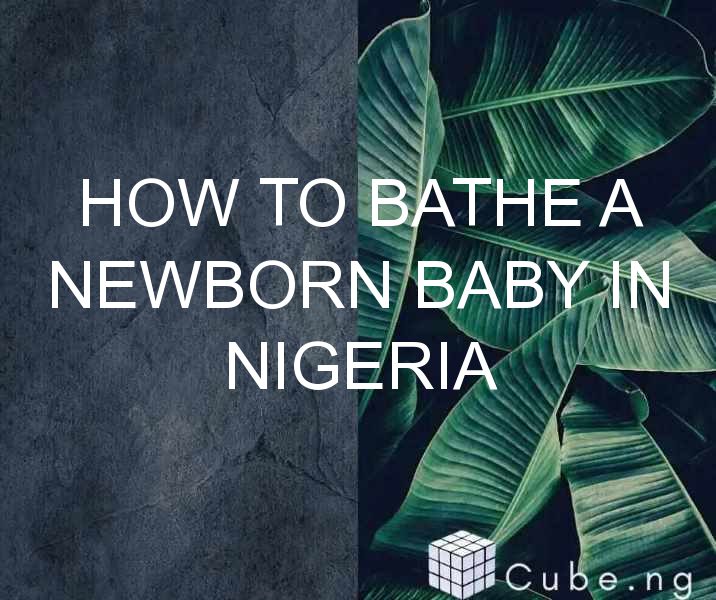Table of Contents
How to Bathe a Newborn Baby in Nigeria
Bathing a newborn baby can be an exciting yet daunting experience, especially for first-time parents. While it may seem like a simple task, there is a lot to consider to ensure the safety and comfort of your little one. In this article, we will provide a step-by-step guide on how to bathe a newborn baby in Nigeria, including tips on temperature, timing, and supplies.
1. Prepare the Bathing Area
Before you begin, it's essential to set up a safe and comfortable bathing area for your baby. First, choose a warm and draft-free room, such as a bathroom or nursery. Then, gather all the necessary supplies, including a baby bathtub or basin, washcloths, towels, baby soap or shampoo, and a clean diaper and clothing.
Fill the bathtub or basin with warm (not hot) water, ensuring that the temperature is between 36-37 degrees Celsius, which is the ideal temperature for a baby's bath. Test the water temperature using a thermometer or your elbow to ensure that it's not too hot or cold.
2. Get Your Baby Ready
Undress your baby and wrap them in a towel, leaving only the parts you're washing exposed. Place your baby gently into the bath, supporting their head and neck with one hand and using the other hand to wash them.
3. Clean Your Baby
Use a soft washcloth to clean your baby's face, starting with their eyes, wiping from the inner corner to the outer corner. Use a different part of the cloth to clean the other eye to avoid spreading any infection. Next, clean your baby's ears, nose, and mouth, being careful not to insert anything into their ear canal or nostrils.
Then, wash your baby's hair with a mild baby shampoo. Use a soft-bristled brush to massage their scalp gently, and rinse with clean water.
Next, wash your baby's body, starting with their neck and working your way down to their toes. Be sure to clean all the folds and creases, including the armpits, groin, and behind the ears.
4. Rinse and Dry Your Baby
Once you've finished washing your baby, rinse them thoroughly with clean water, being careful to avoid getting water in their face. Pat them dry with a soft towel, paying extra attention to the folds and creases to avoid any moisture buildup.
5. Dress Your Baby
After your baby is dry, dress them in a clean diaper and clothing. Use a mild baby lotion or oil to moisturize their skin if needed.
Tips for Bathing a Newborn Baby in Nigeria
- Never leave your baby unattended in the bath, even for a second.
- Avoid using harsh soaps or shampoos that may irritate your baby's skin.
- Use a soft washcloth or sponge to avoid scratching or injuring your baby's delicate skin.
- Always check the water temperature before placing your baby in the bath.
- Never pour water directly over your baby's head or face.
Conclusion
Bathing a newborn baby can be a beautiful bonding experience between parent and child. By following these simple steps and tips, you can ensure that your baby's bath time is safe and comfortable, and a time of joy and closeness.
FAQ
Q: How often should I bathe my newborn baby in Nigeria?
A: It's recommended to bathe your newborn baby two or three times a week, especially if their skin is dry or sensitive.
Q: Can I use a regular bathtub to bathe my newborn baby in Nigeria?
A: Yes, you can use a regular bathtub, but be sure to use a baby bath seat or a non-slip mat to prevent slipping.
Q: When is the best time to bathe my newborn baby in Nigeria?
A: You can bathe your baby at any time of the day, but many parents prefer to do it in the evening, as it can help to relax and soothe them before bedtime.
Q: Can I use a towel to dry my baby after a bath in Nigeria?
A: Yes, you can use a soft towel to dry your baby, but be sure to pat them dry gently, avoiding any friction that may irritate their delicate skin.
Q: Can I bathe my newborn baby in Nigeria immediately after feeding?
A: It's best to wait at least 30 minutes after feeding to bathe your baby, as this can help to prevent vomiting or choking.




